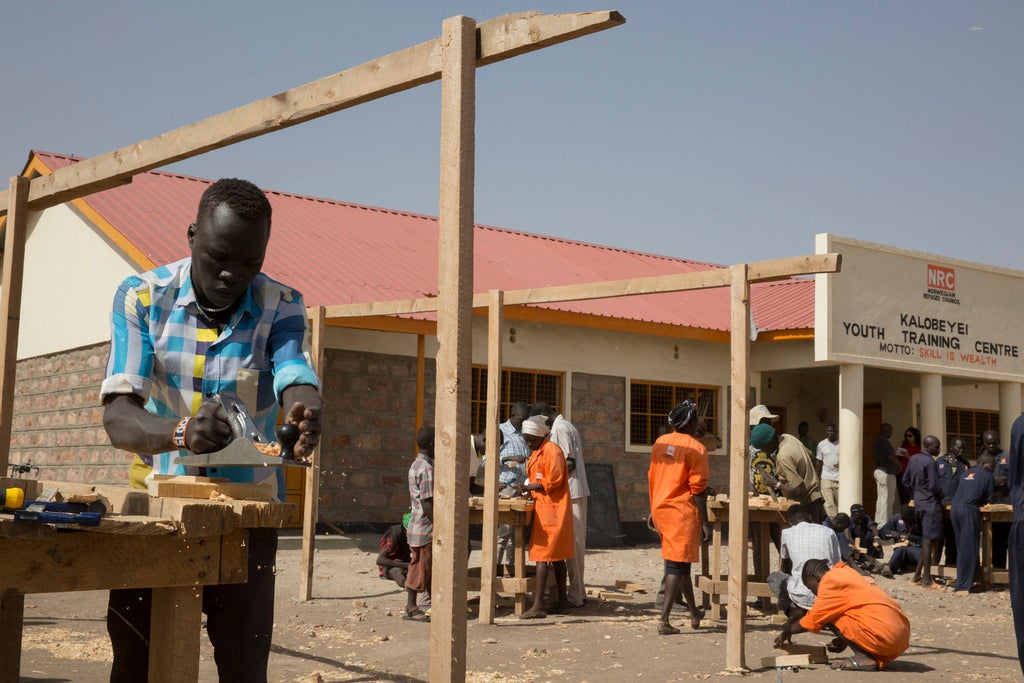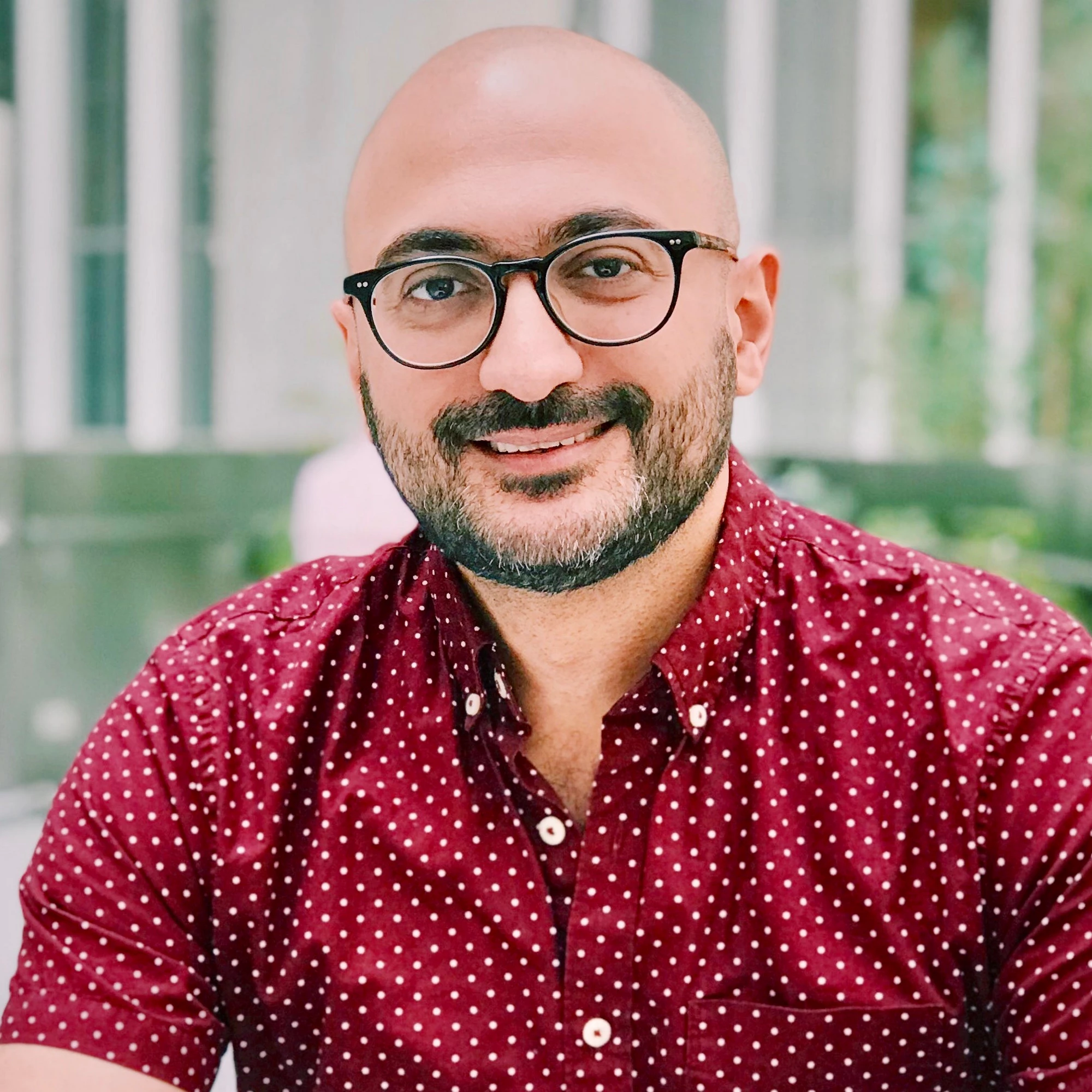
© Dominic Chavez/International Finance Corporation
Youth are the engine of change. Empowering them and providing them with the right opportunities can create an endless array of possibilities. But what happens when young people under 25—who make up 42% of the world’s population – lack safe spaces in which they can thrive?
According to the United Nations, one in 10 children in the world live in conflict zones and 24 million of them are out of school. Political instability, labor market challenges, and limited space for political and civic participation have led to increasing isolation of youth.
That's why the United Nations theme for International Youth Day this year focuses on “Safe Spaces for Youth.” These are spaces where young people can safely engage in governance issues, participate in sports and other leisure activities, interact virtually with anyone in the world, and find a haven, especially for the most vulnerable.
Even though creating safe spaces is a tough challenge in many parts of the world, there are many young men and women striving to do so while creating opportunities for themselves and for the disadvantaged in their communities.
The five youth I have chosen to highlight this Youth Day are all working to create safe spaces in which to encourage positive change – from ending female genital mutilation, to helping others acquire digital skills, promoting peace, girls’ education, and closing the achievement gap.
What about you? Who inspires you and why? Share in the comments below and spread the word on your social networks!
1. Jaha Dukureh (@JahaENDFGM)
Jaha Dhkureh is Africa's Regional Good Will Ambassador for UN Women. She was subjected to female genital mutilation in her native Gambia when she was an infant. Now, she is the founder and executive director of Safe Hands for Girls, an organization working to end the practice, and was the lead campaigner in The Guardian's End FGM Guardian Global Media Campaign. In April 2016, she was named to the 2016 Time 100 Most Influential Leaders list. Dukureh was also nominated for the Nobel Peace Prize in February of 2018 by Norwegian Politician Jette F. Christensen.
I am humbled and privileged to represent young people in my work and thankful to @UN_Women and Mama @phumzileunwomen for the opportunity. We live in a world where many people talk about youth leaders and rising leaders but not many believe in the concept. pic.twitter.com/khc8Oim58L
— Jaha Mapenzi Dukureh (@JahaENDFGM) July 25, 2018
2. Saddam Sayyaleh (@SaddamSayyaleh)
This Jordanian school dropout grew up an orphan and was often abused both physically and mentally, but today is a successful social entrepreneur. Sayyaleh recognized that not all students learn in the same way, which led him to establish I Learn, a non-profit organization that provides alternative learning methodologies to high-risk students. Focusing largely on Syrian refugees and Jordanian students who have dropped out of school, I Learn creates personalized educational opportunities by employing alternative teaching methods and catering to different types of intelligence.
Sayyaleh said he started I Learn to give young people a safe space to develop their skills. His goal is to create a supportive ecosystem inside their communities to help the young acquire the skills, attitudes, and values for a more hopeful future.
Collaboration is a mindset we at @ILearnJo help children and youth to understand and adopt it within their day to day behavior with others and in different circumstances.. I truly love ❤️ our work in #Jordan https://t.co/U3IP3njXaE
— Saddam Sayyaleh (@SaddamSayyaleh) August 3, 2018
3. Mariana Costa Checa (@mcostach)
Described as one of the most innovative young women in Peru by Massachusetts Institute of Technology, Checa is co-founder and CEO of Laboratoria, a social enterprise that is transforming the technology industry in Latin America, giving thousands of women the tools to start a career in the sector. With training centers in Peru, Chile, Mexico, Brazil, and soon more countries in the region, Laboratoria is redefining how to prepare young people for the jobs of the future.
Checha has also been called one of the most influential women in the world by the BBC, President Barack Obama and Mark Zuckerberg.
La semana pasada, celebrando el inicio de @Laboratoriala en Sao Paulo! pic.twitter.com/9WHc26NADq
— Mariana Costa Checa (@mcostach) May 22, 2018
4. Malala Yousafzai (@Malala)
This well-known Pakistani activist for girls’ education was named the youngest Nobel Prize laureate in 2014, when she was only 17. In October 2012, Malala was targeted by the Taliban and shot in the head as she was returning from school on a bus. She miraculously survived and continues her campaign for education.
Malala champions universal access to education through The Malala Fund, which focuses on helping girls around the world go to school and raise their voices for the right to education. "Through our voice, through raising our books and our pens, we can achieve our goals," Malala said.
The most memorable part of my year was meeting courageous girls who are fighting poverty, child marriage, conflict and war to continue their education. pic.twitter.com/erl5H10kdV
— Malala (@Malala) December 31, 2017
5. Santiago Zavala (@dfect)
Santiago Zavala grew up observing first-hand the difficulties entrepreneurs face. As he watched his parents start a series of small businesses in Mexico City, he learned a critical lesson: having a partner who offers encouragement and advice is critical to the success of any enterprise.
So he launched 500 Luchadores, a fund to help Latin America’s tech entrepreneurs scale up. In addition to investing seed money, 500 Luchadores also serves as a start-up accelerator, formalizing and facilitating support for entrepreneurs to expand their operations and secure additional financing.
Inspirado en un post de @makote (o casi que hijackeandolo) hice un video respecto a como ayudar despues del sismo: https://t.co/W7nGjho27p
— Santiago Zavala (@dfect) September 20, 2017


Join the Conversation